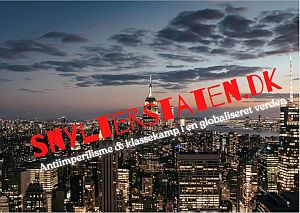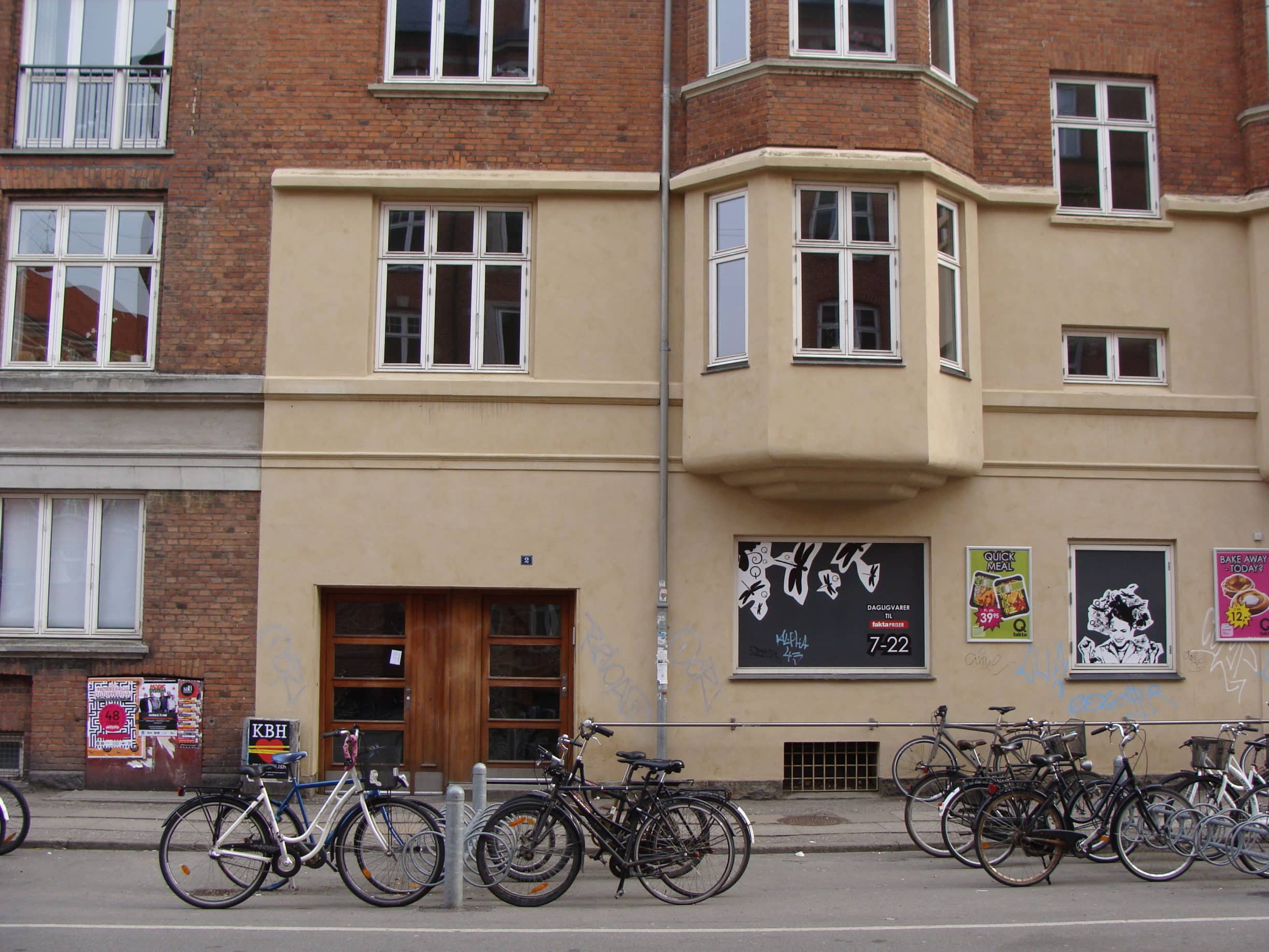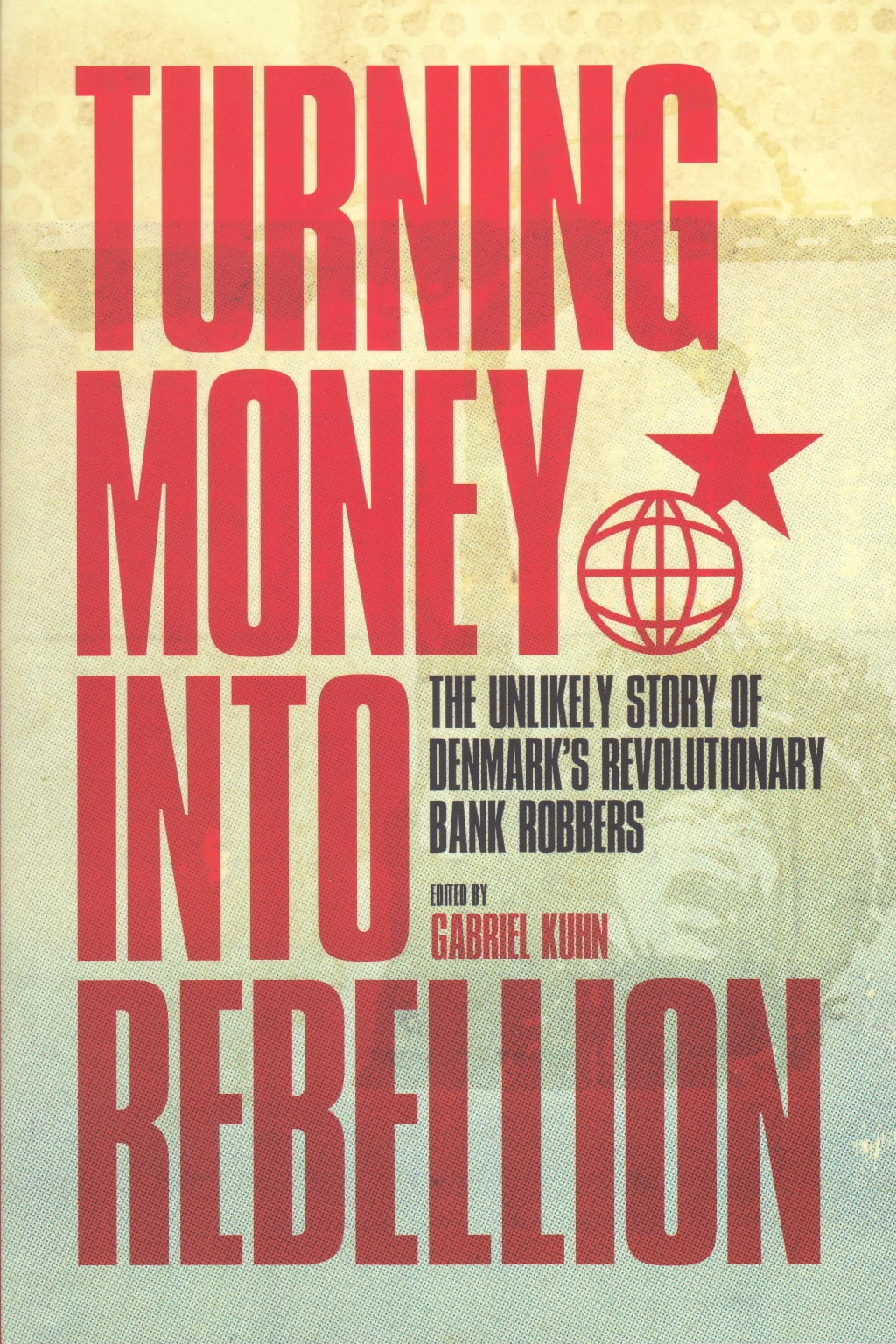Interview with Torkil Lauesen og Jan Weimann about their legal and illegal political activism from the seventies and on.
The Danish Blekinge Street Groups own story told by "The hard core". The groups political theory, the Solidarity work, Their criminal activities, PFLP, and the trial.
Introduction to the Blekingegade case
The essence of the Blekingegade Group was international solidarity. A solidarity that “you can hold in your hands.” Concretely, money. Lots of money. Acquired in robberies in the metropolitan North and passed on to the tricontinental South. For many years. Respect!
Short precentation of the the editor / writer of the book Gabriel Kuhn and the writer of the foreword Klaus Viehmann.
The complete book is online.
The history of the Blekingegade case with an overview of the case and great interview with the group's core. Excerpt of relevant texts from KAK and M-KA. Foreword by German activist Klaus Viehmann.
Contents:
Support the Anti-Imperialist Movements in the Exploited Countries! p. 198
Support the Liberation Movements Materially! p. 200
What do We Work For? p. 201
Contents:
On Productive Forces and Conditions of Production p.143
The Possibilities of Socialism in the imperialist Countries p. 144
Reformism p. 147
The Rise of Reformism p. 147
The Political Development in the Interwar Period p.154
The Effects of Unequal Exchange on International Solidarity p.156
The Working Class has Become a "Sacred Cow" to the Left Wing p.170
Conclusion for the Imperialist Countries p. 174
The Possibilities of Socialism in the Exploited Countries p. 177
What is Development and Underdevelopment? p. 178
The Connection Between Unequal Exchange and Unequal Development p. 180
For a New World Order – What is Progressive? p.189
For a Socialist World Order p. 191
Conclusion Concerning the Perspectives of Socialism in the Exploited Countries p. 195
Contents:
Introduction p. 105
Variation in Wages in a Divided World p. 107
The Concrete Variations in Wages p. 109
Working conditions p. 114
Productivity and Wages p. 116
Productivity and Wages – Final Remarks p. 120
Conclusion p. 122
Equalization of the Rate of Profit p. 123
Capital Movements p.128
Conclusion p.131
The Size of the Unequal Exchange p. 131
Contents:
Introduction p. 57
The Capitalist Mode of Accumulation p. 59
Commodity Production – Generally Defined p. 61
Simple Commodity Production p. 61
Commodity Production Under Developed Capitalism p. 62
Primitive Accumulation p. 63
Labour-Power – Its Value and Price p. 65
Productivity and Wages p. 71
The Use-Value of Labour-Power p. 77
The Circulation of Capital p. 78
Surplus-Value p. 80
The Rate of Surplus-Value p. 80
Cost-Price p. 81
The Rate of Profit p. 82
The Creation of an Average Rate of Profit Between the Branches of Production p. 83
The Conditions for an Equalization of the Rate of Profit Nationally p. 88
Summary p. 89
The World Market p. 89
Unequal Exchange Between Countries p. 90
On Exploitation Between Countries p. 94
On Exploitation p. 96
South Africa – A Concrete Example p. 98
Global Inequality p. 103
Contents:
The Development of Capitalism in the Nineteenth Century p. 31
Britain's Industrial Monopoly p. 32
The Contradiction Production – Consumption p. 32
Marx & Engels On the Potentialities of Capitalism p. 34
The New Manifestation of the Contradiction p. 39
The Development of the United States of America from Colony to Advanced Capitalist Power p. 46
Summary p. 54
Contents:
The Purpose of Theory is Practice p. 19
Marxism – Dialectical Materialism p. 20
Analysis of the Economic Conditions is Fundamental p. 20
The Main Social Contradiction p. 22
The Relationship Between Consciousness and Being p. 23
The Population of the World is Divided into Rich and Poor p. 25
The Consequences of the Present World Order p. 28
It may, on the face of it, appear strange that a political organisation in Denmark should support the publication of a periodical in Tanzania – a periodical, moreover, which addresses itself to readers in the Third World. Why do we not concentrate our efforts on political work in our own part of the world and publish a periodical aimed at the Danish Working class? Why do liberation movements and socialist forces in the Third World command the major part of our attention? This choice of priorities is the outcome of certain fundamental political considerations.
The entire book is online
With the preface of Arghiri Emmanuel, who has delivered the economic analysis of the Unequal Exchange. The CWGs tryes to combine this theory with the theory of the parasite state. "If this is the case, if the proletariat no longer exists in our industrialized countries, if all, or almost all wage-earners, white collars and blue collars together, have become a labour aristocracy by definition producing less value than their wages allow them to appropriate and thus becoming the objective allies of imperialism, which brings them the supplement, what, then, becomes of the political action of revolutionary marxists? To whom, to which class, to which strata of society can they therefore address themselves?" (From Arghiri Emmanuel's preface)
p. 12-16:
"From 1800 to independence India – the British colony comprising present India, Pakistan and Bangladesh – experienced at least 7 major periods of famine. During the period from 1866 to 1878 alone, there were three great famine catastrophes with close to 10 million victims. Among the main reasons behind these famines was British colonization of the country."
p. 6-11:
This second part will discus the development in the principal contradiction since the second world war.
Følg os på / Follow us on Facebook
Nyheder / News
How Sweden & Denmark Ride the Imperialist Wave
Rania Khalek from Breakthrough News interviews Trokil Lauesen on imperialism in Sweden and Denmark.
The Palestinian Left: Past, present, and Future
An analysis and evaluation of the PFLP, the Palestine left and the struggle for the liberation of Palestine with startingpoint in the PFLP document: “Strategy for the Liberation of Palestine” (1969).
To linjer afsluttet
s. 4:
[Notits] Om at Tillægget "To linjer" nu er afsluttet med nr. 6 i dette nummer.





























